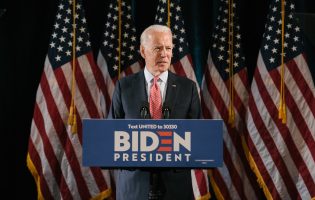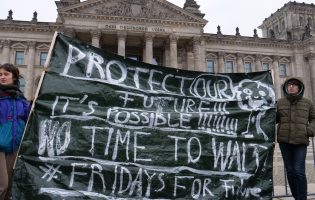
A G7 Climate Club to Booster Transatlantic Relations?
Since January, Germany has held the presidency of the Group of 7 (G7). In line with its own national priorities, the German government announced ambitious climate policy goals for its …

AGI Asks: What is Angela Merkel’s Climate Policy Legacy?
AGI Asks: What is Angela Merkel’s legacy on climate policy? Carol Hager Bryn Mawr College Angela Merkel was dubbed the “Climate Chancellor” during her first term in office. Now, at …

AGI Asks: What to Expect from the Biden Administration?
AGI asks: What are the one or two most important areas of economic, trade, financial, technology, public health, or climate policy where there is the greatest need for German-American or …

Germany’s New “Climate Package”: Too Little, Too Late?
Early in October, the German government introduced its “climate package.” It is a comprehensive bill aimed at reducing the country’s greenhouse gas emissions and enhancing a sustainable energy transformation, especially …

U.S. and German Energy Policy at a Crossroads? The Transatlantic Partners and the Future of Energy Cooperation
The U.S. and Germany are moving in fundamentally different directions with their energy policies. Germany has embarked on its “Energiewende,” an energy strategy based on renewable energy and energy efficiency …

U.S. and German Energy Policy at a Crossroads? The Transatlantic Partners and the Future of Energy Cooperation
I therefore propose that we have a discussion in the climate cabinet about how we could reach the goal of being CO2 neutral by 2050 and the discussion should not …
Sonja Thielges, DAAD/AGI Research Fellow
AGI is pleased to welcome Sonja Thielges as a DAAD/AGI Research Fellow from mid-March to mid-May 2019. In Germany, Sonja is a research associate in the project “Pathways to Sustainable …

New Ideas for an Evolving Transatlantic Partnership
Foreign and Domestic Policy Recommendations During 2017-2018, the AGI project “A German-American Dialogue of the Next Generation: Global Responsibility, Joint Engagement” examined transatlantic challenges and new ideas for the German-American-European …

Changing Resource Needs for a Clean Energy Future: Transatlantic Implications – Part II
Transatlantic Opportunities for a Clean Energy Future As Part I of this blogpost highlights, the transatlantic partners face some risks and uncertainties when it comes to the resources necessary for …

Changing Resource Needs for a Clean Energy Future: Transatlantic Implications – Part I
Critical Materials for a Clean Energy Transition: Rare Earths and Strategic Resources The transformation toward cleaner energy sources entails a demand for resources that are required in clean energy technologies. …





